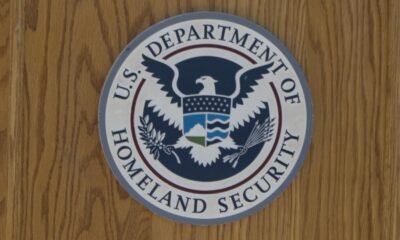border
Az GOP’s ‘Secure Border’ Measure Wins Green Light After Judge Throws Out Constitutionality Challenge

On Friday, a judge dismissed a lawsuit challenging a GOP ballot measure that seeks to make crossing Arizona’s southern border a state crime, allowing it to go before voters in November. The “Secure the Border Act,” which faced opposition due to its extensive provisions, was found to comply with the Arizona Constitution’s single subject rule by Maricopa County Superior Court Judge Scott Minder.
The lawsuit was filed by four Latino advocacy groups, claiming the act violates the single subject rule by including multiple unrelated changes. These changes span from creating a new felony for the sale of lethal fentanyl to penalizing undocumented Arizonans for falsifying documentation to obtain jobs or public benefits. Despite arguments that these provisions are disparate, Minder upheld that they all relate to the single issue of addressing problems related to an unsecured border.
Judge Minder, appointed in 2017 by GOP Gov. Doug Ducey, cited prior cases that established a broad interpretation of the single subject rule. His 11-page order mentioned the 1990 case Knapp v. Miller, where multiple regulations under the theme of “transportation” were upheld. Applying similar logic, Minder concluded that the “Secure the Border Act” covers interconnected responses to border security issues.
In his decision, Minder also emphasized that the act’s provision on fentanyl aligns with the overarching theme of an unsecured border since it involves illegal drug smuggling. The judge stressed that the Legislature’s belief in the connection between lethal fentanyl and border security suffices for meeting the single subject requirement. He reaffirmed that multiple affected groups under a ballot measure do not invalidate it as long as there is a coherent linkage to a single topic.
Senate President Warren Petersen praised Judge Minder’s ruling, stating the decision aligned with the interests of Arizona families striving for secure borders. Petersen, a key proponent of the act, criticized the Democratic governor and administration for not addressing the border issues vehemently enough.
Opponents, including advocacy group LUCHA, expressed concerns about potential over-policing and racial profiling if the act is approved by voters. Jim Barton, attorney for LUCHA, indicated that legal options are being considered, but highlighted that content-based challenges to the act would have to wait until after the ballot decision. Critic Alejandra Gomez from LUCHA warned that the ruling sets a dangerous precedent and affirmed the group’s intention to appeal.
The contentious journey of the “Secure the Border Act” exemplifies the deep political divisions and complex legal interpretations surrounding Arizona’s border policies. As it heads to the voters in November, the act continues to spark heated debates over constitutional provisions and the balance between security and civil rights.


















